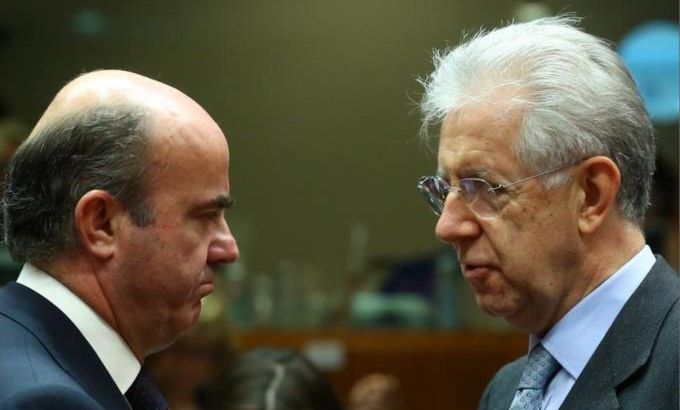Spanish banks to get $37bn eurozone bailout
Eurozone finance ministers agree to offer Madrid an initial $37bn by end of month to prop up stricken banking sector.

Eurozone finance ministers have agreed on the terms of a bailout for Spain’s troubled banks, saying that $37bn can be ready by end of this month.
They agreed to the bail out package to help the country’s troubled banks on Tuesday, at the start of a Eurogroup Finance ministers council at the European Council headquarters in Brussels.
Keep reading
list of 4 itemsParallel economy: How Russia is defying the West’s boycott
US House approves aid package worth billions for Ukraine, Israel
Ecuador weighs security, international arbitration in latest referendum
As part of the agreement with Spain, finance ministers from all 27 European Union countries are expected on Tuesday to approve a one-year extension, until 2014, of Spain’s deadline for achieving a budget deficit of three per cent.
Eurogroup head Jean-Claude Juncker told a press conference that the deadline was extended in view of the difficult economic conditions Spain faces, but stressed that Madrid must implement all the measures needed to bring its public finances in line with EU norms.
The European Commission, the EU’s executive arm, has formally endorsed that proposal. They also renewed Juncker for a two and a half year mandate as the head of the Eurogroup.
“In this way, we have preserved stability and continuity for the Eurozone institutions, which seemed to be indispensable in the current situation,” Pierre Moscivici, french Foreign minister, said.
The exact amount of the bailout will likely not be known until September, when individual examinations of different Spanish banks have been completed.
Spain struggling
Speaking after the bailout had been announced, as he left the meeting, Luis de Guindos, the Spanish Finance Minister, said “everything has gone frankly well. Thank you.”
Jan Kees de Jager, the Dutch Finance Minister, added that discussions had been “extensive and intensive.”
Spain, the fourth-largest economy in the eurozone, has been struggling to keep a lid on its government deficit in the midst of a recession while trying to support its troubled banking industry weighed down by toxic loans and assets from a collapsed property market.
European economic affairs commissioner Olli Rehn insisted that Spain will have to meet all the obligations under the EU’s excessive deficit procedures.
Rehn, speaking after more than nine hours of ministerial talks in Brussels, said the EU now expected Spain’s public deficit – the shortfall of revenue to spending – would be 6.3 per cent of Gross Domestic Product this year, falling to 4.5 per cent in 2013 and then 2.8 per cent in 2014.
Spain in May revised its 2011 public deficit figure, saying that it stood at 8.9 per cent of gross domestic product instead of the 8.51 per cent reported earlier.
The same month, the EU warned that Spain would miss its public deficit targets this year and next while remaining in recession through 2013.
The conservative government of Prime Minister Mariano Rajoy has pledged to cut Spain’s public deficit to 5.3 per cent this year.